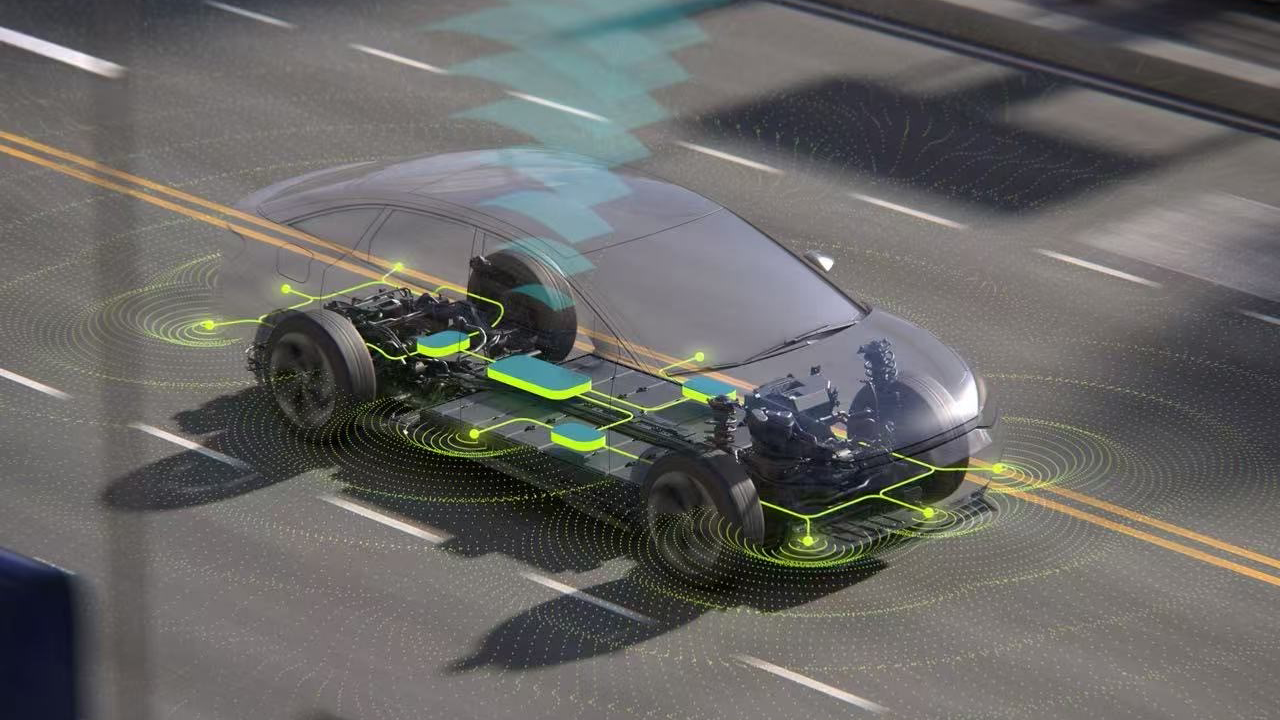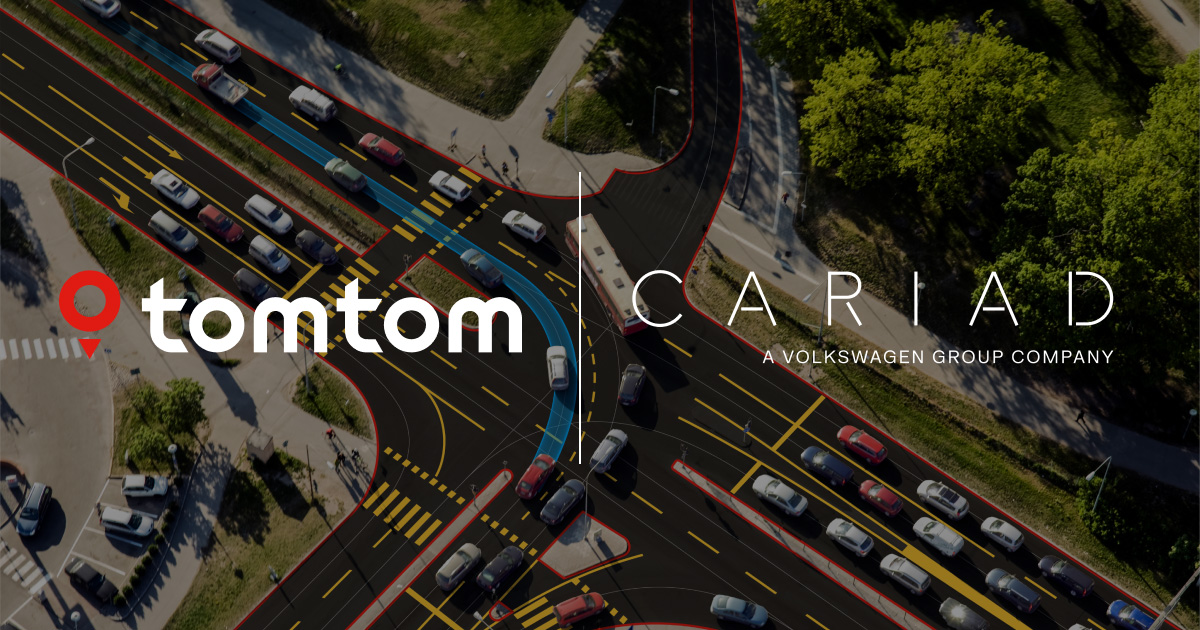Automated driving: Bosch and CARIAD agree on extensive partnership
Engineering alliance will accelerate introduction of automated driving functions across all vehicle classes

- Safe, stress-free, and natural driving experience: hands-free driving functions to be created for one of the world’s biggest vehicle fleets.
- Expertise redoubled: more than 1,000 experts from Bosch and CARIAD to collaborate in engineering work.
- Solutions for today and tomorrow: engineering platform will serve as basis for automated driving up to Level 3.
- Joint development targets to be explored and evaluated for Level 4.
Stuttgart/Wolfsburg/Ingolstadt | 25 January 2022 - More safety and less stress for drivers, more rapid deployment of automated driving functions across all vehicle classes: Bosch and the Volkswagen Group subsidiary CARIAD are now collaborating to achieve this objective, and have agreed to form an extensive partnership. The companies want to make partially and highly automated driving suitable for volume production, and thus available to the broad mass of consumers. For the vehicles sold under the Volkswagen Group brands, the alliance aims to make functions available that will allow drivers to temporarily take their hands off the steering wheel. More specifically, these functions are Level 2 hands-free systems for urban, extra-urban, and freeway driving, as well as a system that takes over all driving functions on the freeway (SAE Level 3). The first of these functions are to be installed in 2023.
For partially and highly automated driving, the two companies will jointly develop a state-of-the-art, standardized software platform. The aim is to use this platform in all privately used vehicle classes sold under Volkswagen Group brands – and thus in one of the world’s biggest vehicle fleets. It will also be possible to integrate all the component parts developed by the alliance in other automakers’ vehicles and ecosystems.
Software and volume-production expertise
“For privately owned vehicles, progress to automated driving happens one step at a time. At Bosch, we’ve been working successfully on this for many years now. Together with CARIAD, we will now be accelerating the market launch of partially and highly automated driving functions across all vehicle classes, and thus making them available for everyone. This will make driving on the roads safer and more relaxed,” says the Bosch board of management member Dr. Markus Heyn. “We will be able to offer the solutions we create to our other customers as well, and in this way set new standards.” The two partners have got what it takes to make increasingly automated driving a common sight on our roads: they have decades of experience in the volume production, scalability, and approval of driving systems, as well as expertise in the areas of software, data-driven development, and artificial intelligence.
“Automated driving is key to the future of our industry. With our cooperation, we’ll strengthen Germany’s reputation for innovativeness. Bosch and CARIAD will further enhance their expertise in the development of pioneering technologies,” says Dirk Hilgenberg, the CARIAD CEO. “This underscores our ambition to deliver the best possible solutions to our customers as soon as possible.”
Intelligently processing information from the real environment
At various locations belonging to the two companies, and especially in Stuttgart and Ingolstadt, associates from the Bosch Cross-Domain Computing Solutions division and CARIAD will work together to develop partially and highly automated driving functions. Working in mixed, agile teams, they will be part of a global network. At peak times, it is expected that the various modules required by the project – from middleware to individual applications – will occupy more than 1,000 experts from the two companies. The two companies have already started recruiting fresh experts to work in the alliance as well.
The focus of the project’s work will be data-driven software development on the basis of information from 360-degree surround sensing. For this purpose, a highly innovative development environment will be created for the recording, evaluation, and processing of data. The environment will also make use of AI methods. The idea behind this is a simple one. The more extensive the pool of data from real road traffic, the more robust and natural the design of the partially and highly automated driving functions can be. This applies, for example, to additional layers for high-resolution maps for the localization and lateral and longitudinal guidance of vehicles. The alliance will also be working on these layers. Moreover, it applies equally to everyday driving situations and to what are known as “corner cases” – the seldom occurring road-traffic incidents that are especially tricky for a system to resolve.
Information processing in real time
“The best proving ground for the development of automated driving is road traffic. With the help of one of the world’s biggest connected vehicle fleets, we will gain access to a huge database. This will allow us to take automated driving systems to a new level. All our customers will be able to benefit from this,” says Dr. Mathias Pillin, president of Bosch Cross-Domain Computing Solutions. “Together, we can test automated driving functions on a broader scale in actual vehicles and implement them more quickly. Our engineering work will be done jointly, with Bosch and CARIAD as one team. There has never been an alliance like this in the automotive industry,” says Dr. Ingo Stürmer, the alliance’s project director at CARIAD.
This also involves feeding the data gathered in real traffic conditions into the development process – continuously and in real time. Each kilometer driven in real traffic conditions, and the data gathered, evaluated, and processed as a result, means a bigger pool of data and a better basis from which to make even higher levels of automated driving reality and get them safely and reliably onto our roads. The partners have also agreed to examine the possibility of joint development targets and timelines on the path the fully automated driving (SAE Level 4).
The guiding principle behind this partnership on equal terms is as follows: one of the world’s biggest automaking groups plus one of the world’s biggest automotive suppliers equals a huge step forward in the development of automated driving.
About CARIAD SE
CARIAD is an automotive software company in the Volkswagen Group that is consolidating and further expanding the Group's software competencies to transform automotive mobility. The company is developing the leading tech stack for the automotive industry with the mission to make the automotive experience safer, more sustainable and more comfortable in a new way – for everyone, everywhere. Established in 2020 under the name Car.Software Organisation, around 4,500 engineers and developers around the world are now working at CARIAD to build a uniform software platform for all brands of Volkswagen Group, which includes a unified and scalable architecture, an operating system and automotive cloud. The new software platform will first be deployed at the end of 2025. In addition, CARIAD is working on outstanding digital automotive features, including ADAS systems, a standardized infotainment platform, software functions for linking powertrains, and chassis and charging technology, as well as new ecosystems and digital business models in and around the vehicle. CARIAD operates in software competence centers in Wolfsburg, Ingolstadt, the area of Stuttgart, Berlin and Munich, and is closely co-operating with international development teams in the Volkswagen Group in the US and China. Find out more: https://cariad.technology
About Bosch
Mobility Solutions is the largest Bosch Group business sector. It generated sales of 42.1 billion euros in 2020, and thus contributed 59 percent of total sales from operations. This makes the Bosch Group one of the leading automotive suppliers. The Mobility Solutions business sector pursues a vision of mobility that is safe, sustainable, and exciting, and combines the group’s expertise in the domains of personalization, automation, electrification, and connectivity. For its customers, the outcome is integrated mobility solutions. The business sector’s main areas of activity are injection technology and powertrain peripherals for internal-combustion engines, diverse solutions for powertrain electrification, vehicle safety systems, driver-assistance and automated functions, technology for user-friendly infotainment as well as vehicle-to-vehicle and vehicle-to-infrastructure communication, repair-shop concepts, and technology and services for the automotive aftermarket. Bosch is synonymous with important automotive innovations, such as electronic engine management, the ESP anti-skid system, and common-rail diesel technology. The Bosch Group is a leading global supplier of technology and services. It employs roughly 395,000 associates worldwide (as of December 31, 2020). The company generated sales of 71.5 billion euros in 2020. Its operations are divided into four business sectors: Mobility Solutions, Industrial Technology, Consumer Goods, and Energy and Building Technology. As a leading IoT provider, Bosch offers innovative solutions for smart homes, Industry 4.0, and connected mobility. Bosch is pursuing a vision of mobility that is sustainable, safe, and exciting. It uses its expertise in sensor technology, software, and services, as well as its own IoT cloud, to offer its customers connected, cross-domain solutions from a single source.
The Bosch Group’s strategic objective is to facilitate connected living with products and solutions that either contain artificial intelligence (AI) or have been developed or manufactured with its help. Bosch improves quality of life worldwide with products and services that are innovative and spark enthusiasm. In short, Bosch creates technology that is “Invented for life.” The Bosch Group comprises Robert Bosch GmbH and its roughly 440 subsidiary and regional companies in some 60 countries. Including sales and service partners, Bosch’s global manufacturing, engineering, and sales network covers nearly every country in the world. With its more than 400 locations worldwide, the Bosch Group has been carbon neutral since the first quarter of 2020. The basis for the company’s future growth is its innovative strength. At 129 locations across the globe, Bosch employs some 73,000 associates in research and development, of which nearly 34,000 are software engineers.
Additional information is available online at www.bosch.com, www.iot.bosch.com, www.bosch-press.com, https://twitter.com/BoschPress
Download
Media Contact
Caroline Schulke (Bosch) Phone: +49-711-811-7088
Fabian Lebersorger (CARIAD) Phone: +49-174-612-78-29




